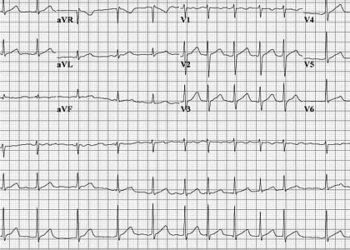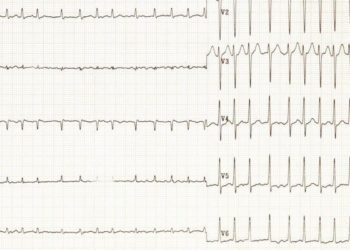Timing of daily antihypertensives does not change cardiovascular outcomes
1. The primary composite cardiovascular endpoint was similar among patients in the evening and morning dose groups.
2. Self-reported adverse events such as dizziness, upset stomach, and diarrhea were more common with the morning dose group compared to the evening dose group.
Evidence Rating Level: 1 (Excellent)
Study Rundown: Normal blood pressure exhibits a diurnal rhythm with higher blood pressures in the morning and lower in the evening. Previous studies have suggested that evening dosing of antihypertensives may have a benefit in countering the morning surge in blood pressures. However, there is little evidence to solidify this. This randomized trial aimed to assess the effect of evening versus morning dosing of antihypertensive medication on major cardiovascular outcomes in adults with hypertension. The primary composite outcome included vascular death or hospitalization for non-fatal myocardial infarction and stroke. According to study results, morning and evening dosing of antihypertensive medication were equally effective. Similarly, there were no significant differences were seen in the individual secondary outcomes or subgroup analyses between the morning and evening dosing groups. This study was strengthened by a large sample size with predominantly older patients, thus adding to its credibility. However, there was a considerable proportion of patients reporting nonadherence to the study allocation, with more non-adherence seen in the evening groups.
Click to read the study in The Lancet
Relevant Reading: Trial of Intensive Blood-Pressure Control in Older Patients with Hypertension
In-depth [randomized-controlled trial]: Between Dec 17, 2011, and Jun 5, 2018, 24 610 patients were screened for eligibility in the UK. Included were those ≥ 18 years with a clinical diagnosis of hypertension and ≥ 1 antihypertensive. Patients who worked shiftwork and those who were prescribed antihypertensives with more than one daily dose were excluded from study enrollment. Altogether, 19 386 patients (9537 in evening dose and 9849 in morning dose) were included in the primary analysis. Mean age of patients was 65.1 years (standard deviation [SD] 9.3) and the majority were White (90.2%) males (57.5%). The primary outcome of death or hospitalization due to myocardial infarction or stroke was comparable in both groups (3.4% evening treatment; 0.69 events per 100 patient-years; 95% confidence interval [CI] 0.62-0.76 vs. 3.7% morning treatment; 0.72 events per 100 patient-years; 95% CI 0.65-0.79; p=0.53). The occurrence of mild adverse events such as dizziness, indigestion, and diarrhea were more common with the morning dose group (70.5%) compared to the evening dose (70.5%, p=0.041). Findings from this study suggest comparable efficacy between evening and morning dose for antihypertensive therapy.
Image: PD
©2022 2 Minute Medicine, Inc. All rights reserved. No works may be reproduced without expressed written consent from 2 Minute Medicine, Inc. Inquire about licensing here. No article should be construed as medical advice and is not intended as such by the authors or by 2 Minute Medicine, Inc.









